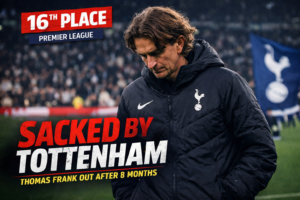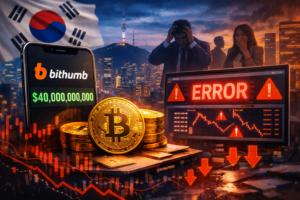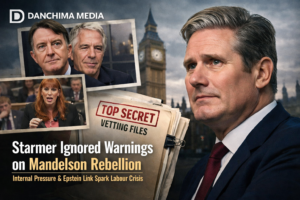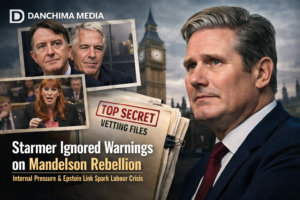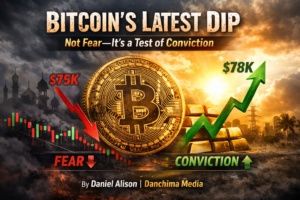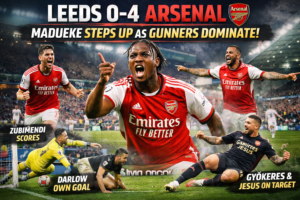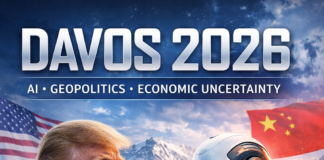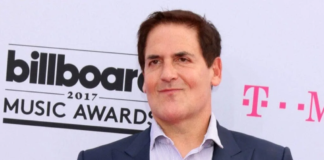|
Getting your Trinity Audio player ready...
|
The Trump administration’s decision to impose tariffs on steel and aluminum imports has sparked a heated trade conflict, prompting strong retaliatory measures from key allies like the European Union (EU) and Canada. The U.S. justified the tariffs, which took effect in 2018, under Section 232 of the Trade Expansion Act of 1962, claiming that foreign steel and aluminum imports posed a threat to national security. However, this move has been met with widespread criticism and counteractions from trading partners.
In response, the EU and Canada swiftly announced their own tariffs on U.S. goods. The EU targeted iconic American products such as motorcycles, bourbon, and blue jeans, while Canada focused on steel, aluminum, and agricultural goods like coffee and maple syrup. These retaliatory measures were designed to pressure the U.S. to reconsider its trade policies and to protect domestic industries from the impact of the tariffs.
The escalating trade war has raised concerns about its economic consequences. Analysts warn that higher tariffs could lead to increased costs for manufacturers, rising prices for consumers, and potential job losses in industries reliant on imported materials. Additionally, the strained trade relations threaten to disrupt long-standing economic partnerships between the U.S. and its allies.
Politically, the tariffs reflect the Trump administration’s broader “America First” trade agenda, which seeks to reduce trade deficits and protect domestic industries. However, critics argue that the approach risks isolating the U.S. from its allies and undermining the global trading system. The EU and Canada have emphasized their commitment to free trade and have called for dialogue to resolve the dispute.
Looking ahead, the future of these trade tensions remains uncertain. While some hope for negotiations to de-escalate the conflict, others fear further retaliatory measures or prolonged disputes through international bodies like the World Trade Organization (WTO). The outcome of this tariff war could have lasting implications for global trade dynamics and economic stability.
- Thomas Frank Sacked by Tottenham After Eight Months in Charge
Tottenham Hotspur have dismissed head coach Thomas Frank after just eight months in charge, following a home defeat to Newcastle that left the club 16th in the Premier League, only five points above the relegation zone.
Frank, who was appointed on 12 June 2025 on a three-year contract to replace Ange Postecoglou, departs after failing to secure a league victory in 2026. Spurs endured a run of eight league matches without a win, managing only two victories in their last 17 Premier League games. The club also suffered early exits from both domestic cup competitions.
While Tottenham’s Champions League campaign has been relatively positive — finishing fourth in the league phase to reach the last 16 — domestic struggles and fan unrest ultimately sealed Frank’s fate.
Supporter frustration had intensified in recent weeks, with fans openly booing the coach and chanting for his dismissal during home matches. Critics pointed to uninspiring attacking play, limited creativity, predictable crossing patterns, and poor buildup structure. Tottenham’s attacking unit struggled to deliver consistent goal output, with several high-profile forwards contributing only six league goals combined this season.
The club’s poor home form proved particularly damaging, with Spurs winning just two league matches at the Tottenham Hotspur Stadium — a record worse than all but Burnley and Wolves.
Although the Tottenham board initially resisted sacking Frank, citing injury setbacks, squad limitations, and the demands of Champions League football, the mounting pressure from performances, results, and fan sentiment forced a change.
In a statement, the club said it had been committed to giving Frank time to build long-term progress, but concluded that a managerial change was necessary at this stage of the season.Frank becomes the latest managerial casualty in Tottenham’s turbulent recent history.
- Suspect in shooting of senior Russian general has been detained, Russia says
Russia’s Federal Security Service said Sunday that the man suspected of shooting a deputy chief of Russia’s military intelligence agency in Moscow was detained in Dubai and handed over to Russia.
Lt. Gen. Vladimir Alekseyev was hospitalized after being shot several times Friday by an assailant at an apartment building in northwestern Moscow, Investigative Committee spokesperson Svetlana Petrenko said. The attack followed a series of assassinations of senior military officers that Russia has blamed on Ukraine.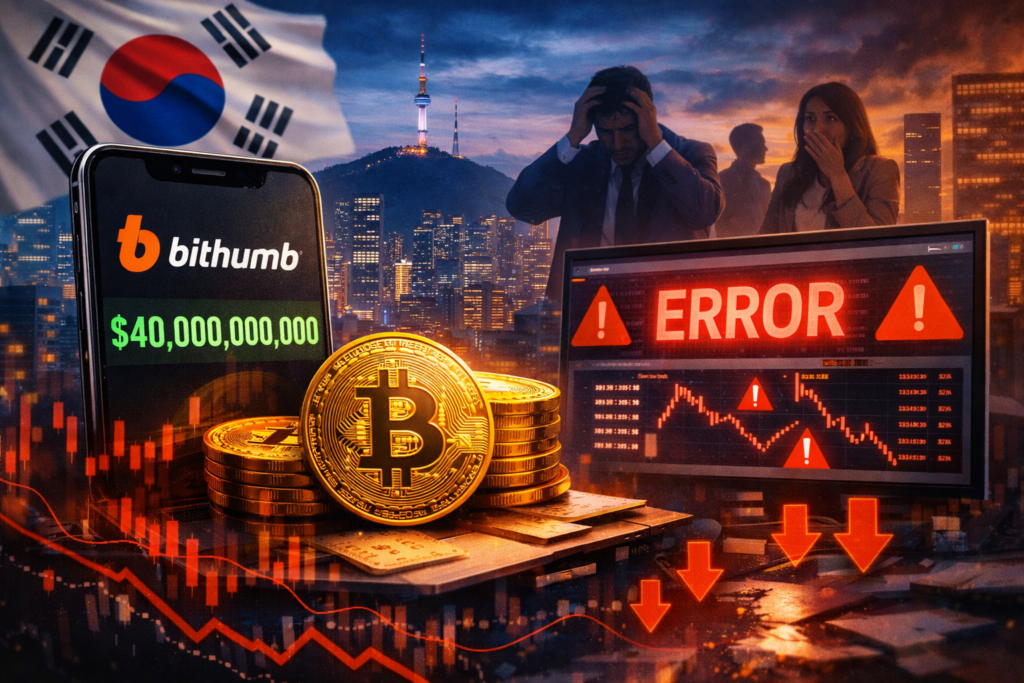
The Federal Security Service (FSB) said a Russian citizen, Lyubomir Korba, was detained in Dubai on suspicion of carrying out the shooting. In a statement on its website, FSB said it had also identified two “accomplices,” one of whom was detained in Moscow and another who “left for Ukraine.”
Asked about the shooting, Russian Foreign Minister Sergey Lavrov said Friday it would be up to law enforcement agencies to pursue the investigation but described it as an apparent “terrorist act” by Ukraine intended to derail peace talks.
There was no immediate response from Kyiv to a request for comment on the Russian allegations.
The shooting came a day after Russian, Ukrainian and U.S. negotiators wrapped up two days of talks in Abu Dhabi, the United Arab Emirates, aimed at ending the nearly 4-year-old conflict in Ukraine. The Russian delegation was led by Alekseyev’s boss, military intelligence chief Adm. Igor Kostyukov.
Alekseyev, 64, has served as the first deputy head of Russia’s military intelligence agency, known as the GRU, since 2011.
He was decorated with the Hero of Russia medal for his role in Moscow’s military campaign in Syria. In June 2023, he was shown on state TV speaking to mercenary chief Yevgeny Prigozhin, when his Wagner Group seized the military headquarters in the southern city of Rostov-on-Don during his short-lived mutiny.US President Donald Trump.
Since Moscow sent troops into Ukraine in 2022, Russian authorities have blamed Kyiv for several assassinations of military officers and public figures in Russia. Ukraine has claimed responsibility for some of them.
In December, a car bomb killed Lt. Gen. Fanil Sarvarov, head of the Operational Training Directorate of the Russian Armed Forces’ General Staff.
In April, another senior Russian military officer, Lt. Gen. Yaroslav Moskalik, a deputy head of the main operational department in the General Staff, was killed by a bomb placed in his car parked near his apartment building just outside Moscow.A Russian man who previously lived in Ukraine pleaded guilty to carrying out the attack and said he had been paid by Ukraine’s security services.
Days after Moskalik’s killing, Ukrainian President Volodymyr Zelenskyy said he received a report from the head of Ukraine’s foreign intelligence agency on the “liquidation” of top Russian military figures, adding that “justice inevitably comes” although he didn’t mention Moskalik’s name.
In December 2024, Lt. Gen. Igor Kirillov, the chief of the military’s nuclear, biological and chemical protection forces, was killed by a bomb hidden on an electric scooter outside his apartment building. Kirillov’s assistant also died. Ukraine’s security service claimed responsibility for the attack
- South Korean Crypto Exchange Accidentally Distributes Over $40 Billion in Bitcoin
A major South Korean cryptocurrency exchange, Bithumb, has admitted to mistakenly distributing more than $40 billion (£32 billion) worth of bitcoin to customers — briefly turning hundreds of users into crypto millionaires.
The error occurred when the company intended to issue a small promotional reward of 2,000 won (about $1.37) to users. Instead, due to a technical glitch, it mistakenly credited recipients with 2,000 bitcoins each.
Bithumb said the mistake was detected quickly, and trading and withdrawals for 695 affected accounts were frozen within 35 minutes of the incident. The company claims it has since recovered 99.7% of the approximately 620,000 bitcoins that were incorrectly distributed.
In a statement, the exchange emphasized that the incident was not the result of hacking or a security breach, insisting customer assets and platform security remain intact.> “This matter has nothing to do with external hacking or system vulnerabilities,” Bithumb said.
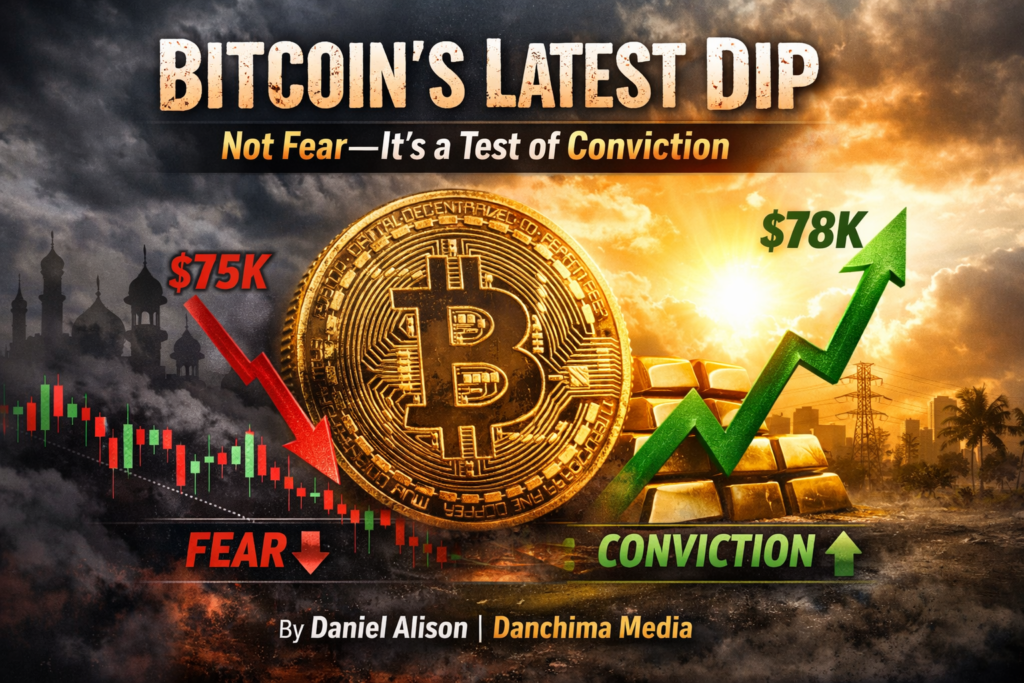
Regulators Step In
South Korea’s Financial Supervisory Service (FSS) announced it will review the incident following an emergency meeting. Officials warned that any evidence of illegal activity could trigger a formal investigation.
Bithumb’s CEO, Lee Jae-won, pledged full cooperation with regulators and promised stronger safeguards going forward.
> “We will take this incident as a serious lesson and prioritize customer trust and stability over rapid growth,” he said.
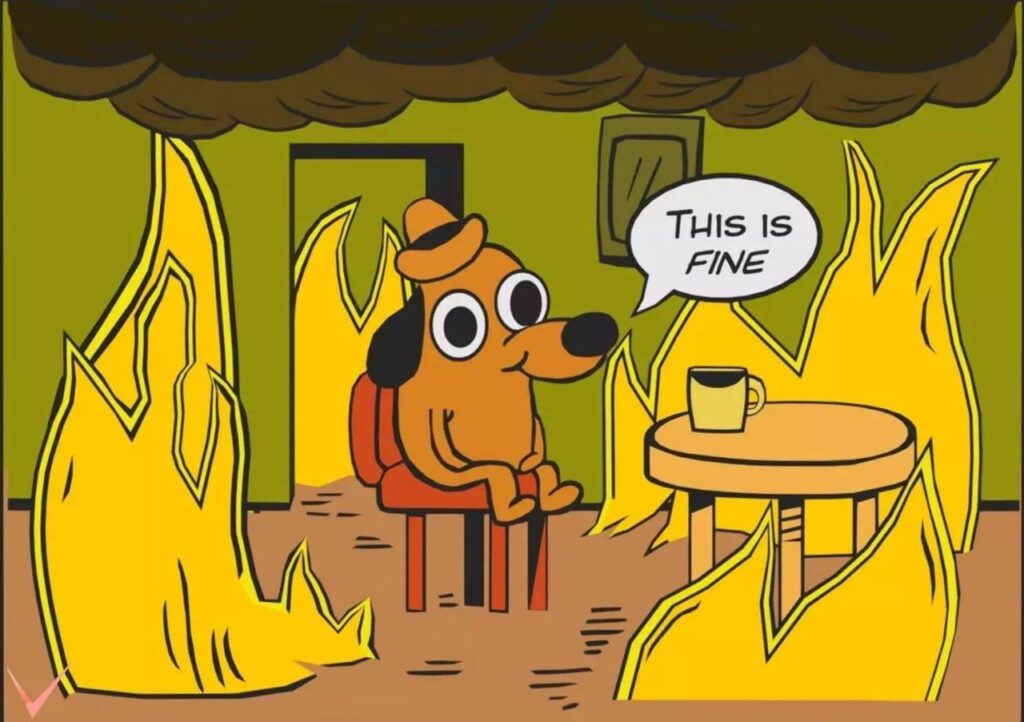
Compensation and System Upgrades Planned
To restore confidence, Bithumb announced it will:
Pay 20,000 won ($13.66) in compensation to all active users at the time of the error
Waive trading fees for affected customers
Upgrade its verification systems
Introduce AI-based monitoring tools to detect abnormal transactions in real time
A Broader Industry Wake-Up Call
The incident is expected to intensify global conversations around financial safeguards and crypto regulation, highlighting the risks of automated transaction systems.
A similar case occurred in April 2024, when Citigroup mistakenly credited a customer $81 trillion instead of $280 — an error that was reversed only after multiple employees failed to catch it.
- Starmer ignored warnings from ministers on how to stop Mandelson rebellion
Starmer ignored warnings from ministers on how to stop Mandelson rebellion
Keir Starmer (right) revealed that he knew about Peter Mandelson’s relationship with convicted paedophile Jeffrey Epstein (Photo: Carl Court/PA)
Sir Keir Starmer’s No 10 and Labour whips ignored warnings as early as Tuesday evening that a Labour rebellion was brewing over the release of full vetting documents relating to Peter Mandelson’s appointment as the UK’s ambassador in the US.
Three government sources told The i Paper that it had not been former deputy prime minister Angela Rayner who initially led attempts to secure changes to how the papers would be published.
Instead, they credited behind the scenes lobbying from Cabinet minister Alan Campbell and Home Office minister Jess Phillips with trying to change minds in No 10 and save Starmer from a humiliating climbdown.
Downing Street had endeavoured to temper the Conservatives’ attempt to disclose the Mandelson paper trail by incorporating provisions for national security and the safeguarding of international relations.
However, MPs called the action a “cover-up” and advocated for Parliament’s Intelligence and Security Committee (ISC), rather than the Cabinet Secretary, to decide on their disclosure.
LIVERPOOL, ENGLAND – JANUARY 25: Former Deputy Prime Minister of the Labour party, Angela Rayner, delivers a speech during Labour’s North West Regional Conference at the Titanic Hotel on January 25, 2026 in Liverpool, England. The 2026 regional conference serves as a key gathering for over 60 Labour-held seats in the North West and a significant portion of the party’s membership. Rayner addresses the Labour North West regional conference as a back bench MP after stepping down from her ministerial positions last year over tax irregularities. In her speech she encourages party members to “fight back for the soul of this country” from Nigel Farage and Reform UK at the local elections on May 7. (Photo by Ryan Jenkinson/Getty Images)
While Rayner was widely credited with leading the rebellion, the truth is more nuanced, a party source said (Photo: Ryan Jenkinson/Getty)
At Prime Minister’s Questions (PMQs) at noon on Wednesday, Starmer was still advocating for his plan but after the rebellion threatened to get out of hand, whips were forced to draft a last-minute amendment to appease MPs.
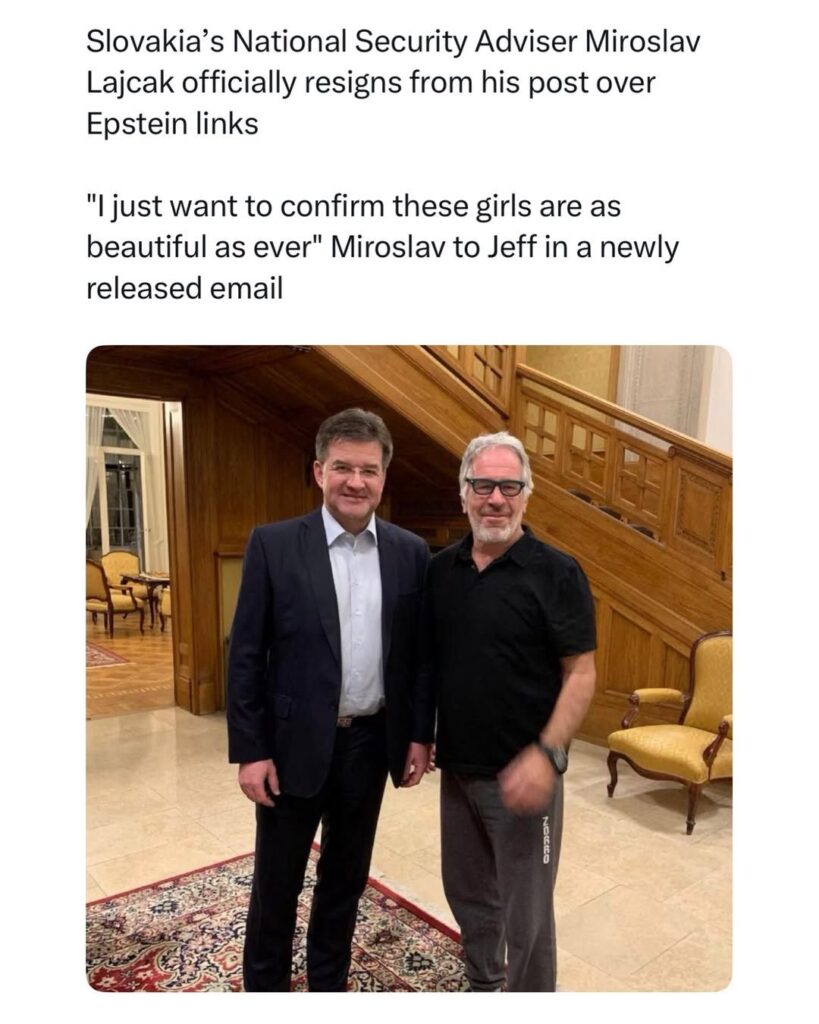
By Wednesday evening, his authority was in tatters.
“No 10 and the whips were warned on Tuesday that the ISC was the only viable option,” one of the Government sources said.
“Jess Phillips and Alan Campbell are the unsung heroes in all this. From Tuesday night, they were saying they had to go down the ISC route,” the second source said.
“Keir was still talking about not using the ISC at PMQs,” the source added. “There’s a constant pattern of this in No 10; arriving at the correct position far too late and then not getting the credit because they fought it all the way there.”
The third source confirmed that Campbell and Phillips had both been in No 10 on Wednesday morning and discussed the depth of unease among Labour backbenchers with Starmer’s officials.
Campbell spoke to Starmer himself. ISC Chairman Kevan Jones had also been consulted and was willing for his committee to come on board.
But even as he took PMQs at noon, Starmer had not heeded their advice. Tory Leader Kemi Badenoch urged Labour MPs to rebel and vote with her to include the ISC in overseeing the documents’ release.
After Starmer revealed that he knew about Mandelson’s relationship with convicted paedophile Jeffrey Epstein, Labour MPs retreated into Parliament’s tearoom in shock and fury.
The message – which had been relayed privately to No 10 – that they would not support the Government’s original motion, was now played out publicly on the floor of the Commons and social media.
While Rayner was widely credited with leading the rebellion, the truth is more nuanced, a party source said. “Maybe she did some tearoom rallying, but the work had been done,” the source said.
Rayner’s intervention was widely interpreted as a reminder that she has leadership intentions of her own, while she seeks to settle her outstanding tax payments with HMRC.
“Angela was in the chamber salivating as she was sticking the knife in, but then she’s always there to kick Keir when he’s down,” a second Labour source said, adding, “But behind the scenes it was Alan and Jess doing the heavy lifting.”
An ally of Rayner rejected the characterisation. In fact, Rayner had stuck to the facts in the chamber.
“Given the public disgust and the sickening behaviour of Peter Mandelson and the importance of transparency, in 2022 I proposed a humble address seeking information about Personal Protective Equipment [PPE] which the [Conservative] party resisted,” she said.
“Should we not have the ISC have the same role in keeping public confidence in the process?”
A spokesman for Rayner and Downing Street declined to comment.
The picture that motivated furious King to force Andrew into isolation
The picture that motivated furious King to force Andrew into isolation
The i Paper
I did a job I loved, but now have no savings – and can’t retire like my friends
I did a job I loved, but now have no savings – and can’t retire like my friends
The i Paper
I’m an Olympic curling champion – my seven tips to become an armchair expert
I’m an Olympic curling champion – my seven tips to become an armchair expert
The i Paper
The UK is abandoning helicopters, tanks … and its ability to defend itself
The UK is abandoning helicopters, tanks … and its ability to defend itself
The i Paper
Peter Mandelson came to my wedding – and then tried to have me sacked
Peter Mandelson came to my wedding – and then tried to have me sacked
Video shows flashpoint over flags in town divided by plan to house 540 migrants
ByJoe Duggan
Feb 5, 2026 7:08 pm CET
Video shows flashpoint over flags in town divided by plan to house 540 migrants
The row over flags displayed in Crowborough, right. Lorna Marter, 37, left, said the flags had been put up by her children (Photos: The i Paper)
Outside an ex-military site in Crowborough, a late morning confrontation laid bare growing tensions in the East Sussex town over asylum seeker accommodation.
A scuffle broke out between a woman who had cut down Union Jack and St George’s flags from fencing outside Crowborough Training Camp and three protesters trying to take them back.
Minutes later, a bus carrying migrants arrived at the former military barracks, which has seen weekly demonstrations since plans to house up to 540 men were revealed in October.
The woman – who asked not to be named – said she was “shaken” by the argument with two men and a woman, but had stopped to take down the flags as she found them “really offensive”.
“I cut the flags down. They’re being used for racist, aggressive purposes, to make these people, these asylum seekers, feel unwelcome,” she told The i Paper.
“The fact this big man is aggressively standing in front of me, raging and then pulling these flags back off me, says it all.
“They all came up to me, and they grabbed them off me. They forcibly took the flags off me and said, ‘these are our property’.”
As she spoke, one of the men was heard asking where she lived and the woman grabbed some flags from her hand.
One of the three protesters, Bob, said they came to the site to get an idea of movements into the camp and saw her “ripping off” the flags with scissors.
“She started telling us that we’re racist and don’t we know what this flag means?” he said.
“I said, ‘It’s the flag of our country. Why is that being racist?’”
When it was put to him that the woman had felt intimidated, he replied: “Why didn’t she just give us the flags back?”
Sussex Police said no criminal offences were identified after officers on patrol responded to an “altercation”.
But the dispute is a microcosm of how the issue of asylum accommodation has divided the country and sparked anger in local communities, with Crowborough the latest flashpoint.
In a recent environmental impact assessment sent to Wealden District Council, Steve Reed, the Housing Secretary, warned of the risk of riots over plans to accommodate asylum seekers at the base, which had been used by Army cadets.
There have been regular peaceful protests in the town, but nothing to suggest any escalation, the council has said.
The statement from the Ministry of Housing, Communities and Local Government on behalf of Reed also said there is no previous evidence to indicate increases in crime from asylum seeker accommodation.
But local residents in Crowborough who spoke to The i Paper say they have safety concerns after the first 27 male asylum seekers were rehoused at the site last month.
Banners and flags draped at the entrance to Crowborough army base Photo: Joe Duggan
Banners and flags draped at the entrance to Crowborough Training Camp (Photo: Joe Duggan)
Last year, disturbances broke out in Epping outside a hotel housing asylum seekers after an Ethiopian resident, Hadush Kebatu, sexually assaulted a 14-year-old girl and a woman eight days after arriving in the UK on a small boat.
“I’m scared for my kids’ safety. I don’t want them to walk around the streets anymore,” said, Lorna Marter, 37.
“I’ve got an 11-year old, a 13-year-old and 15-year-old daughter as well. I just went for a walk down to the other gate on my own, and I felt uncomfortable.”
She held the flags that were cut down earlier that morning, which she said her children had put up on Saturday.
Concerns about the camp have led to residents forming a group called Crowborough Patrol, whose members wear hi-vis jackets and branded red baseball caps as they walk through the town.
Dave Williams, who lives next to the base, said he has installed £5,000 of security around his land, with estate agents saying he and other homeowners can now “forget” about selling.
Dave Williams, who lives next to the base, said he has installed ?5,000 of security around his land, with estate agents saying he and other homeowners can now “forget” about selling. Photo: Joe Duggan
Dave Williams, who lives near the base, has installed £5,000 of security measures around his property (Photo: Joe Duggan)
“Placing 540 unvetted males in a very small town, in a small camp right where there’s a lot of housing right on the edge of town, I think it’s ill-conceived,” he said.
“They can’t justify putting it so close to a town and really allowing them to have freedom of movement when we don’t know who they are, where they come from, what the background is.”
The Home Office says the site has 24/7 security with CCTV and strict sign-in processes for residents who have completed health and police checks before arriving at the base.
Mr Williams said he had attended the protests that have seen hundreds march through Crowborough against the Government proposals.
But not everyone in the town of around 22,000 is supportive of the weekend rallies.
“I’d hate to be a refugee with nowhere to go, so I just hope that they behave themselves and don’t give people cause to say, ‘I told you so’. But otherwise I don’t go marching,” said Alison Atkinson, 73.
I’d hate to be a refugee with nowhere to go, so I just hope that they behave themselves and don’t give people cause to say, ?I told you so?. But otherwise I don’t go marching,? said? Alison Atkinson, 73m in Crowborough.
Alison Atkinson, 73, says she has not attended the marches against using the military site in Crowborough as accommodation for asylum seekers (Photo: Joe Duggan)
“I’m one of the Crowborough litter pickers, and I do more good keeping the town nice than they do marching up and down.
“Decent folk can’t get up and down the road, and an ambulance would never get through. So they’re a little bit of a nuisance.”
Carlos, 65, said he felt “fifty-fifty” about asylum seekers being housed at the camp.
“Obviously, they’re [the protesters] not all from Crowborough. They’re coming from other towns as well,” he said.
“People in private, they’re saying that they feel for the migrants. But then again, they say they feel for their local residents as well.”
But migrants’ rights group Care4Calais said Crowborough is “another disaster waiting to happen” after asylum seekers’ housed at ex-military base Wethersfield in Essex and Napier Barracks in Kent reported the sites were “isolating and retraumatising”.
Hundreds of people assemble, waving flags and banners, outside Crowborough Training Camp, where the Home Office is planning to house 600 male migrants in a former army barracks in East Sussex,
United Kingdom, on January 25, 2026. The first 27 migrants were transported to the camp under police escort at 3:30 a.m. on Wednesday, January 21, 2026. (Photo by STUART BROCK/Anadolu via Getty Images)
A number of protests like this one last month have been held in Crowborough in recent weeks (Photo: Stuart Brock/Anadolu/Getty)
Home Secretary, Shabana Mahmood, has been tasked with speeding up efforts to close asylum hotels to bring down costs, arguing military sites are vital for the plan.
Home Office figures show the number of asylum seekers being temporarily housed in hotels increased by 13 per cent to 36,273 at the end of September.
Mahmood has vowed to defend any legal challenge “vigorously”.
Kim Bailey, chair of residents’ group Crowborough Shield, which has been granted a hearing to determine if there are grounds for a judicial review, said local people fell “betrayed”.
“Because this is a decision that is going to impact on this whole town, this town’s way of life,” she said.
“They have just ram-raided this decision through with no consultation, no risk assessments, no impact assessments, no consideration for the asylum seekers themselves.”
James Partridge, the Liberal Democrat leader of Wealden District Council, which has submitted arguments to the court objecting to the Home Office’s decision ahead of the hearing , said the camp is “not suitable”.
“This council is completely opposed to the Government’s plans to house asylum seekers at Crowborough Camp,” he said.
“It’s time the Government was forced to listen to what local people are saying.”
A Home Office spokesperson said: “The Government is removing the incentives drawing illegal migrants to Britain.
“That is why we will close every single asylum hotel, moving illegal migrants into basic accommodation like military barracks.
“We are also making it easier to remove illegal migrants off British soil, with nearly 50,000 people with no right to be here returned or deported under this Government – an increase of 23 per cent.”
More from
The i Paper
The i Paper
Labour ‘women in grey suits’ could be sent to tell Starmer to resign
Labour ‘women in grey suits’ could be sent to tell Starmer to resign
The i Paper
I’m a dream engineer – I get inside people’s heads like in Inception
I’m a dream engineer – I get inside people’s heads like in Inception
The i Paper
The evidence Jeffrey Epstein was a spy for Putin – examined
The evidence Jeffrey Epstein was a spy for Putin – examined
The i Paper
Delaine Le Bas: ‘My parents weren’t bothered about sending me to school’
Delaine Le Bas: ‘My parents weren’t bothered about sending me to school’
The i Paper
Keir Starmer’s hand tremors are nothing to be ashamed of. You wouldn’t cope
Keir Starmer’s hand tremors are nothing to be ashamed of. You wouldn’t cope - The Epstein Files Expose a Culture of Elite Impunity — Not Just a Criminal Network
The latest release of millions of Epstein-related documents is not merely another scandal cycle — it is a window into how power, privilege, and silence intersect at the highest levels of society.
While appearing in the Epstein files does not equate to criminal guilt, the revelations point to something just as unsettling: a prolonged culture of tolerance toward a convicted sex offender by some of the world’s most influential figures.
This is no longer just a story about Jeffrey Epstein.
It is a story about who stayed close to him, who benefited from proximity, and who chose convenience over conscience.
Elite Access, Moral Blindness
The files reveal casual emails, social exchanges, financial interactions, and invitations involving billionaires, politicians, royalty-linked figures, and media power brokers — long after Epstein’s crimes were publicly known.
Even when wrongdoing is denied, a fundamental question remains unanswered:
Why did Epstein continue to enjoy social legitimacy among global elites after his conviction?
Legal innocence does not erase ethical responsibility.
Turning a blind eye is not neutrality — it is complicity by comfort.
A Failure of Institutions, Not Just Individuals
Beyond the names themselves lies a deeper institutional failure.
Governments delayed transparency.
Agencies filtered disclosures.
Authorities released records reluctantly — and only after public pressure.
This raises a troubling reality:
If accountability depends on outrage, can justice ever truly be trusted?
Partial transparency does not restore confidence — it erodes it. And every withheld document strengthens public suspicion that the full truth remains buried.
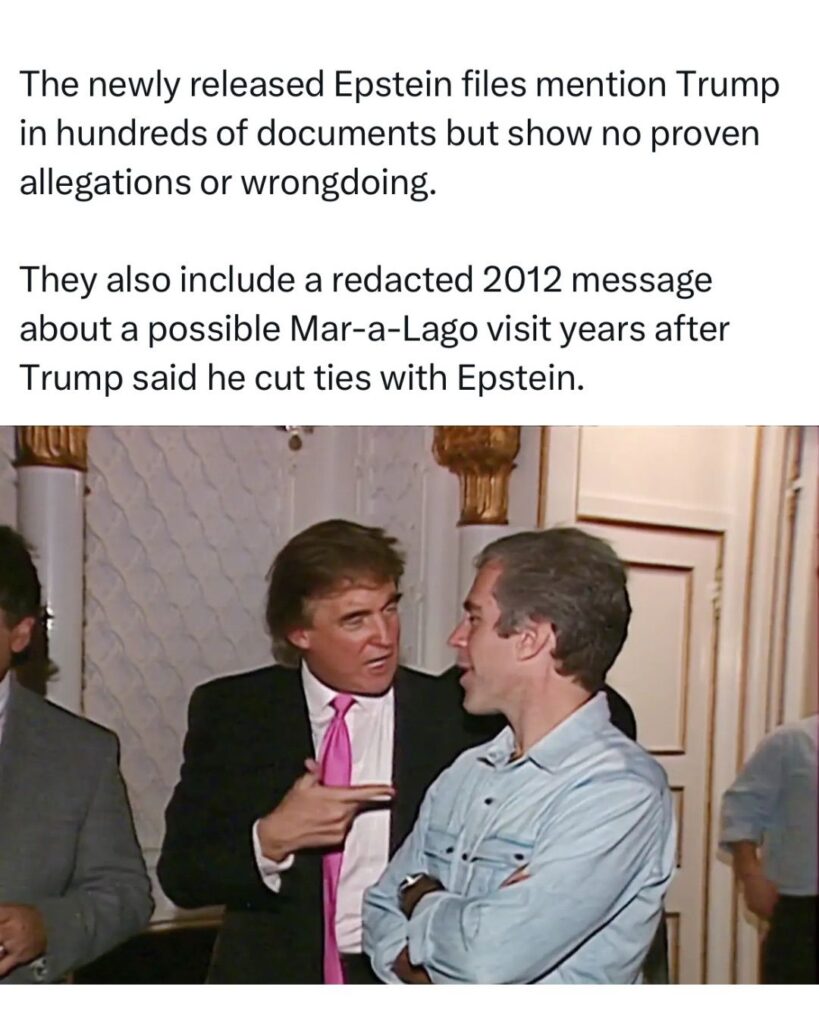
The Real Victims Are Still Being Marginalized
As public attention fixates on famous names, the voices that matter most continue to be sidelined: the victims.
Women and girls who endured exploitation remain overshadowed by celebrity intrigue, political spin, and media spectacle. The moral center of this case has repeatedly been displaced — not by accident, but by a culture that prioritizes status over suffering.
Justice for Epstein’s victims should not be an afterthought.
It should be the headline.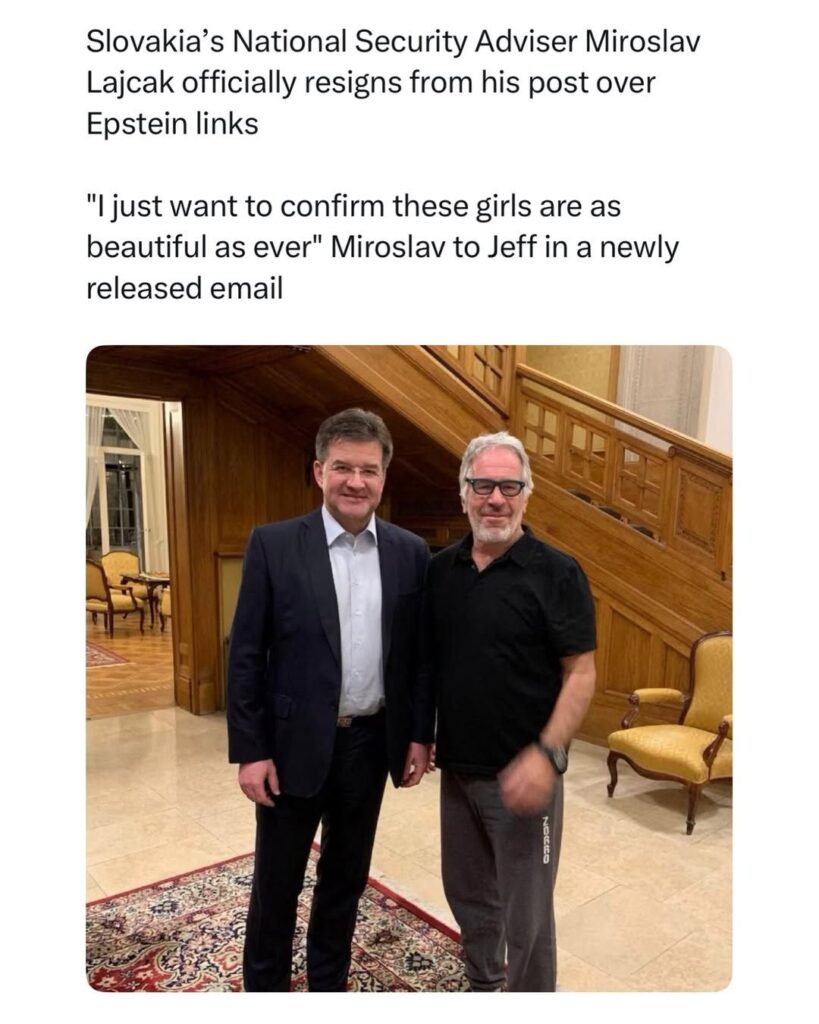
The Bigger Reckoning
The Epstein files force an uncomfortable but necessary reckoning:
This is not only about a predator.
It is about how elite networks protect reputations, normalize misconduct, and escape consequences.
The most disturbing revelation is not merely who appears in the documents —
but how routine this proximity to power appears to have been.
If society fails to confront the systems that enabled Epstein, it risks repeating the same cycle — with different names, different victims, and the same silence.
- Bitcoin’s Latest Dip Is Not Fear — It’s a Test of Conviction
Disclaimer: This article reflects personal opinion and market commentary only. It is not financial or investment advice.
Bitcoin has done it again.
After briefly dipping toward the $75,000 level, Bitcoin rebounded near $78,000, triggering a familiar cycle of panic, speculation, and emotional trading across the crypto space. Headlines screamed fear, timelines filled with doom posts, and market sentiment indicators lit up in red.
But this wasn’t a breakdown. It was a stress test.

As Bitcoin pulled back, gold surged—once again playing its traditional role as a perceived safe haven. To critics, the divergence looked like a warning sign. To experienced market participants, it was business as usual. Bitcoin has always moved differently. Volatility isn’t a defect in the system; it’s part of its design.
When fear dominates sentiment, logic often disappears. History shows that extreme fear phases are frequently where long-term positions are quietly built, while short-term traders exit in frustration. Markets don’t punish lack of intelligence—they punish lack of discipline.The boys in the crypto memes For investors in emerging economies, particularly across Africa and the Middle East, Bitcoin is more than a speculative asset. It is a hedge against unstable currencies, policy uncertainty, and restricted financial access. In that context, temporary drawdowns are less alarming and more expected.
This latest dip serves as a reminder: Bitcoin does not reward impatience or emotional decision-making. It rewards conviction, risk awareness, and long-term thinking. Those who survive crypto cycles are rarely the loudest voices—they are the ones who understand what they hold and why they hold it.
The real story is not the dip itself.
It’s the reaction to it.
Volatility is the price of participation.
Conviction is the differentiator.
And Bitcoin continues to separate believers from tourists.
- What We Learned — and Didn’t — From Melania Trump’s New Documentary
A newly released documentary, Melania: 20 Days to History, offers a controlled and carefully curated look into Melania Trump’s life in the days leading up to Donald Trump’s January 2025 inauguration. Co-produced by the former first lady, the film promises intimacy and insight — but delivers more polish than personal revelation.
While the project claims to show Melania’s journey from private citizen to first lady, much of the footage focuses on surface-level moments: travel scenes, event preparations, wardrobe fittings, and design meetings. Viewers hoping for candid reflections on politics, family life, or her husband’s presidency may leave feeling unsatisfied.

Small Personal Glimpses, Limited Depth
The documentary’s most human moments come from brief off-script interactions. Melania reveals her fondness for Michael Jackson, even singing along to “Billie Jean” during a car ride. However, these moments feel fleeting — more like branding than meaningful storytelling.
The film’s most emotional segment centers on her grief over the death of her mother, Amalija Knavs, in 2024. Melania describes the loss as deeply painful, calling her mother “the richest thread of my life.” Her vulnerability here stands out as one of the documentary’s few genuinely revealing scenes.
A Carefully Curated Inner Circle
The documentary highlights Melania’s close relationships with her stylist Hervé Pierre and France’s First Lady Brigitte Macron. Their conversations focus on fashion, aesthetics, and shared personal values. Yet, broader family dynamics — including her relationship with Donald Trump’s children — are largely absent.
Her son Barron appears briefly but avoids the spotlight, reinforcing the film’s theme of privacy over transparency.
The new Melania Trump’s movie
A Reserved First Lady
Throughout the film, Melania hints at discomfort with the public demands of her role. She speaks about balancing responsibilities as a mother, wife, and public figure, emphasizing emotional resilience over political involvement.
Although world events appear in the background — including humanitarian crises and hostage cases — Melania avoids detailed political commentary, choosing empathy without clear policy stances.
Politics, Public Reaction, and Controversy
Public reaction to the film has been heavily shaped by politics. Critics argue the project functions as reputation management, especially given its funding by Amazon and its release during a period of political tension and protests in the US.
Supporters praised the documentary at screenings, while detractors accused it of being tone-deaf, overly expensive, and strategically timed to influence public perception.
What the Film Ultimately Reveals
Rather than offering groundbreaking insight into Melania Trump’s worldview or influence, the documentary reinforces her preference for privacy, control, and distance from political controversy.
Her closing message frames the role of first lady as personal evolution:
> “The real nobility is becoming stronger than the person I was yesterday.”
- Madueke Steps Up as Arsenal Crush Leeds and Strengthen Title Push
Arsenal delivered a commanding 4–0 win over Leeds United at Elland Road, reinforcing their Premier League title credentials — and showcasing the squad depth that could define their season.
With Bukayo Saka ruled out moments before kickoff due to injury, many Arsenal fans feared a dip in attacking threat. Instead, Noni Madueke seized the opportunity, proving why the club invested heavily in him.Manchester City The former Chelsea winger was instrumental in Arsenal’s dominance, providing two assists and unlocking a stubborn Leeds defense. His precise cross allowed Martin Zubimendi to open the scoring with a header, before another dangerous delivery led to a Karl Darlow own goal, doubling Arsenal’s lead before halftime.
Despite Leeds showing brief pressure early in the second half, Arsenal’s superior depth proved decisive. Gabriel Martinelli, introduced off the bench, set up Viktor Gyökeres for Arsenal’s third, while Gabriel Jesus sealed the victory late on with a composed finish after a clever assist from Martin Ødegaard.

The match highlighted Arsenal’s evolving identity under Mikel Arteta — a team no longer reliant on just one or two stars, but built on depth, tactical flexibility, and match-changing substitutes. Even with travel disruptions caused by fog forcing a long coach journey north, the Gunners played with control and confidence.
With a seven-point lead at the top of the Premier League table, Arsenal have steadied their title charge, reminding rivals Manchester City and Aston Villa that their squad strength could be the deciding factor in the race.
- US Government Enters Partial Shutdown Despite Late Senate Funding Deal
The United States federal government has entered a partial shutdown after a last-minute funding agreement failed to clear all legislative hurdles.
The funding lapse took effect at midnight Eastern Time on Saturday (05:00 GMT), only hours after the US Senate approved a stopgap bill to keep most federal agencies funded through September. Under the agreement, the Department of Homeland Security (DHS) received only two weeks of temporary funding rather than full-term coverage, preventing its immediate closure.
However, the deal has not yet been passed by the House of Representatives, which is currently out of session—triggering the partial shutdown.
President Donald Trump negotiated the compromise with Democrats after they declined to approve additional funding for immigration enforcement agencies. The standoff follows public outrage over the fatal shooting of two US citizens in Minneapolis by federal immigration agents.
This marks the second government shutdown within a year and comes just 11 weeks after the conclusion of the previous impasse, which lasted 43 days—the longest shutdown in US history. That 2025 shutdown, spanning from 1 October to 14 November, disrupted major government services, including air travel, and left hundreds of thousands of federal workers unpaid for weeks.
While the current shutdown is expected to be shorter and less disruptive, the White House has instructed several departments—including transportation, education and defence—to begin implementing shutdown procedures.
In a memo circulated to federal agencies, the White House said employees should report to work only to carry out “orderly shutdown activities,” adding that officials hope the lapse will be brief.
President Trump has urged Republican lawmakers, who hold the majority in the House, to support the Senate-approved deal when they return to session on Monday.
Lawmakers plan to use the two-week DHS funding window to negotiate a broader agreement. Democrats insist that any long-term deal must include reforms to immigration enforcement practices.
“We need to rein in ICE and end the violence,” Senate Minority Leader Chuck Schumer said, calling for stricter oversight of Immigration and Customs Enforcement. He demanded an end to roving patrols, mandatory judicial warrants, visible identification for officers, body cameras, and an end to masked operations. “There should be no secret police,” he added.Criticism of immigration enforcement tactics has intensified following the fatal shooting of Alex Pretti, an intensive care nurse, in Minneapolis last weekend. Pretti was shot by a US Border Patrol agent during an altercation in which multiple agents attempted to restrain him.
In response, the US Justice Department announced on Friday that it has launched a civil rights investigation into the incident.
As political negotiations continue, the shutdown underscores deep divisions in Washington over immigration policy, law enforcement accountability, and federal funding priorities.
UK–China Reset: What Starmer’s China Visit Really AchievedThe recent visit of UK Prime Minister Sir Keir Starmer to China marks the most significant shift in UK–China relations in nearly a decade. After years of strained diplomacy, both nations appear to be signaling a cautious economic and political thaw, driven by internal financial pressures and shifting global power dynamics.
Starmer’s trip—the first by a British prime minister since 2018—highlights a broader effort to revive trade, rebuild trust, and secure new investment channels between London and Beijing.
Why This Visit Matters
Both Britain and China are navigating economic uncertainty at home. For the UK, the mission aimed to open new trade opportunities in sectors such as:
Finance
Pharmaceuticals
Healthcare
Clean energy
Automotive manufacturing
For China, the visit serves as a strategic message to the West that it remains open to cooperation, especially as the United States adopts a more aggressive trade stance under President Donald Trump.
While no comprehensive free trade agreement emerged, the discussions resulted in tangible economic and diplomatic commitments that signal a slow but deliberate reset.
Key Agreements and Economic Gains
AstraZeneca’s Major Investment
AstraZeneca announced a $15 billion investment in China over the next four years to expand pharmaceutical research and manufacturing. This marks the company’s largest-ever financial commitment in the Chinese market.
UK Entry into China’s Energy Market
British energy firm Octopus Energy partnered with PCG Power to launch a digital electricity trading platform in China. The project is designed to improve power efficiency and support China’s renewable energy expansion, giving the UK a foothold in the world’s largest green energy market.
Scotch Whisky Tariff Reduction
China agreed to cut import tariffs on Scotch whisky by half, a move expected to inject approximately £250 million into the UK economy over five years. The deal strengthens Scotland’s global whisky competitiveness in a rapidly expanding Chinese consumer market.
Visa-Free Travel for British Citizens
British travelers can now visit China visa-free for up to 30 days, improving tourism, business travel, and cultural exchange. The UK joins a list of countries already benefiting from similar access.
Migration & Security Cooperation
Both governments committed to increased collaboration on combating human trafficking and migrant-smuggling networks, aligning with UK domestic security priorities.
What China Gains from the Deal
For Beijing, strengthening ties with the UK sends a powerful geopolitical signal—especially to Western allies skeptical of China’s global role.
China benefits through:
Increased access to UK and European markets
Greater export potential for electric vehicles, solar technology, and renewable equipment
Expanded investment opportunities in British finance, technology, and green industries
Improved diplomatic credibility as a stable global partner
Chinese state media framed the visit as a step toward turning long-term cooperation potential into real-world economic outcomes.
Ongoing Challenges for Foreign Businesses
Despite the progress, international firms still face persistent obstacles in China, including:
Regulatory complexity
Bureaucratic hurdles
Limited transparency
Market access concerns
While UK companies remain optimistic, they acknowledge the need for careful navigation of China’s business environment.
Geopolitical Risks and US Pressure
Starmer’s China outreach comes amid heightened tensions with the United States. President Trump has warned allies—including the UK—against deepening economic ties with Beijing, even threatening punitive tariffs against countries that expand cooperation with China.
Starmer, however, maintains that Britain does not need to choose between Washington and Beijing, framing the strategy as a balanced, growth-focused foreign policy.
Global Context: A Broader Western Shift Toward China
The UK’s visit is part of a broader trend. Leaders from France, Canada, and Finland have also traveled to Beijing recently, seeking economic diversification amid uncertainty in US-led trade policy.
As middle powers attempt to hedge against global volatility, competition for Chinese investment and market access is expected to intensify.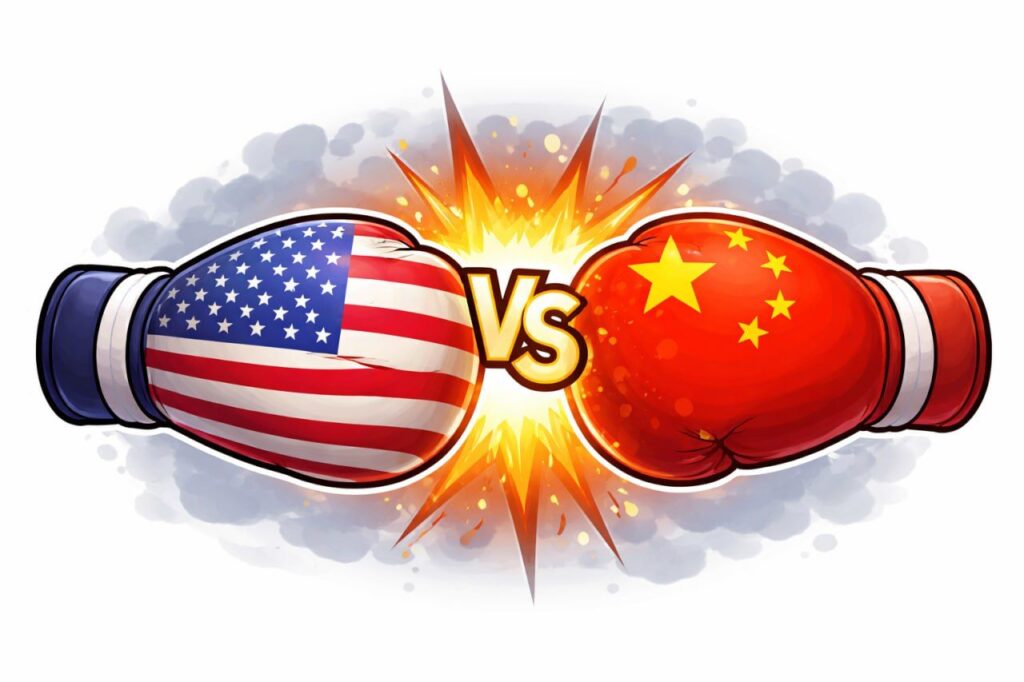
Sir Keir Starmer’s China visit does not mark a dramatic policy revolution—but it does represent a strategic recalibration. The UK is betting on pragmatic engagement to boost economic growth while managing geopolitical risks.
Whether this diplomatic reset delivers long-term benefits will depend on how effectively both nations translate symbolic agreements into sustainable economic progress.
- IShowSpeed and the Collapse of the African Narrative
For decades, Africa has been framed through a narrow and damaging lens. To much of the world—especially in the West—the continent has been reduced to images of poverty, conflict, and stagnation. It is a narrative shaped by selective media coverage, outdated documentaries, and inherited colonial assumptions.
Then, unexpectedly, a 19-year-old American streamer disrupted it.
When YouTube star IShowSpeed embarked on a livestreamed tour across several African countries, he didn’t arrive as a journalist, historian, or activist. He came as himself—unfiltered, unscripted, and visibly curious. What followed was not just a viral moment, but a real-time collapse of a long-standing global narrative.
A Reality Few Were Prepared to See
As Speed streamed from African cities, millions of viewers watched in disbelief. Not because Africa looked unfamiliar—but because it contradicted everything they had been taught to expect.
They saw modern infrastructure, vibrant street life, internet connectivity, music, fashion, laughter, and hospitality. They saw crowds welcoming Speed not as a spectacle, but as family. And most importantly, they saw a continent that looked alive, complex, and contemporary.
The dominant reaction online was not admiration—it was shock.
A recurring sentiment echoed across comment sections and reaction videos:
“We’ve been lied to.”

Contrast That Exposed the Lie
Earlier in his travels, Speed had toured parts of Europe, where he was met with open racism—monkey chants, banana-throwing, and hostility disguised as humor. The contrast was stark.
In Africa, the experience was the opposite. He was protected, celebrated, respected, and embraced. Not as a novelty, but as a brother.
That contrast forced uncomfortable questions: If Africa is “uncivilized,” why did it feel more humane?
If Europe is “developed,” why did it feel more hostile?
The Power of Unmediated Storytelling
What made Speed’s tour so powerful was not intention, but absence of mediation.
There were no institutional filters.
No political framing.
No expert commentary.
Just a peer sharing lived experience in real time.
This is where mainstream media failed—and why a streamer succeeded.
If these images had come from a tourism board, they would have been dismissed as propaganda.
If they came from a documentary, they would have been debated.
If they came from academia, they would have been ignored.
But they came from someone young people trust—because he feels like one of them.
Africa Is Not a Country
One of the most glaring misconceptions exposed by this moment is the idea of Africa as a single place. Africa is a continent of 54 countries, each with distinct cultures, histories, economies, and realities.
Speed’s experience does not represent every African experience. Poverty exists. Conflict exists. Inequality exists—just as it does in the United States, Europe, and elsewhere.
But suffering is not Africa’s defining feature. Complexity is.
An Emotional Awakening, Not a Debate
This was not a policy discussion or an academic correction. It was an emotional awakening.
People do not change deeply held beliefs through statistics.
They change them through emotional proximity.
Speed didn’t argue.
He didn’t explain.
He simply reacted—with joy, curiosity, and wonder.
And those reactions persuaded millions more effectively than decades of lectures ever could.
A Shift in Global Influence
This moment signals something larger:
the decline of institutional narrative control.
Today, YouTube and livestreaming shape perception more powerfully than traditional media. Trust has shifted from institutions to individuals. From experts to peers. From scripts to experiences.
A teenager with a phone accomplished what global media networks failed to do over generations—by simply showing reality.
Reconnection Begins in the Mind
For many in the African diaspora, this moment carried deeper meaning. The lie was not only told about Africa—it was told to people of African descent worldwide. Separation was framed as rejection. Distance was framed as disinterest.
Speed’s journey quietly corrected that distortion.
Africa is not frozen in the past.
It is not waiting to be discovered.
It is living, evolving, imperfect, welcoming, and proud.
And when false filters fall away, truth moves freely.
Danchima Media
Challenging narratives. Restoring context. Telling the stories that matter.
- The Guardiola Blueprint: Manchester City’s Relentless, Costly Pursuit of Perfection
In the rarefied air of the Etihad Stadium, success is not merely measured in trophies—though there are plenty—but in microns of tactical margin, in the seamless execution of an idea. When Manchester City secures a signing, like the reported £65 million capture of Bournemouth’s Antoine Semenyo, the football world reacts with a now-familiar mixture of awe and exasperation. The transfer is another data point in the most expensive scientific experiment the sport has ever seen: the relentless, iterative pursuit of footballing perfection under Pep Guardiola.
For the rivals and the skeptics, the narrative writes itself. It is a story of endless chequebooks and cold disposal. Sign Nathan Aké for £45 million. Didn’t work? Go and spend £50 million on Khusanov, £31 million on Ait-Nouri. Give me João Cancelo for £60 million. Didn’t work? Drop £77 million on Josko Gvardiol.
The list, as fans on social media tirelessly chronicle, reads like a chronicle of excess: £100 million for Jack Grealish, £55 million for Jérémy Doku, £34 million for Savio, a rumored pursuit of Rayan Cherki. In midfield, the search for the elusive formula continues: £42 million for Kalvin Phillips, £53 million for Matheus Nunes, £25 million for Mateo Kovačić, and now, whispers of another £60 million for Fiorentina’s Nico González.
Manchester City last match against Manchester united
It is easy, from the outside, to view this as mere financial gluttony. A cynical cycle of buying, discarding, and buying again, funded by a bottomless well of sovereign wealth. The punchline is always ready: Here’s £80 million for Omar Marmoush, he’s a bum. Take another £65 million for Semenyo.
But to dismiss it as such is to miss the profound, almost philosophical heart of the Manchester City project. This is not scattergun spending. This is targeted, iterative problem-solving on a grand scale. Each “failed” signing is not a mistake to be mourned, but a hypothesis tested. Each successive purchase is a refined variable, a closer approximation of Guardiola’s ever-evolving vision.
The Catalan manager does not buy players; he acquires specialist tools for a specific, complex craft. If one chisel doesn’t hold its edge for the precise cut he needs, he finds another, regardless of cost. The mission—to execute his footballing ideal—is paramount. The financial outlay is merely the resource required to eliminate compromise.

For every Grealish who evolves into a crucial controller, there is a Cancelo whose brilliant individualism ultimately clashes with the system’s demands. The system is non-negotiable. The player, no matter the fee, is adaptable or expendable. It is a brutal calculus, but one executed with chilling efficiency.
This approach demands a particular kind of resilience from a player. It can be a cold environment, lacking the sentimental patience of a traditional club. Yet, for a certain breed of footballer, it represents the ultimate challenge: the chance to work under the game’s most demanding architect, to be a cog in the most finely tuned machine in football history. This, reportedly, is what attracted Semenyo—the chance to be forged by Pep.

New signing to Etihad The emotional cost of this model is the erosion of a romantic, patient narrative. There are no long-suffering heroes here, only temporary engineers of success. But the professional yield is unprecedented: a machine that learns, adapts, and improves with every transaction.
So, when the next £65 million signing is unveiled, remember: you are not just watching a transfer. You are witnessing the latest iteration of a blueprint. A draft revised, a formula tweaked, another step in a costly, heartless, and utterly relentless journey toward a perfect game. The rest of football can only look on, criticize the expense, and wonder if they’re even playing the same sport.


